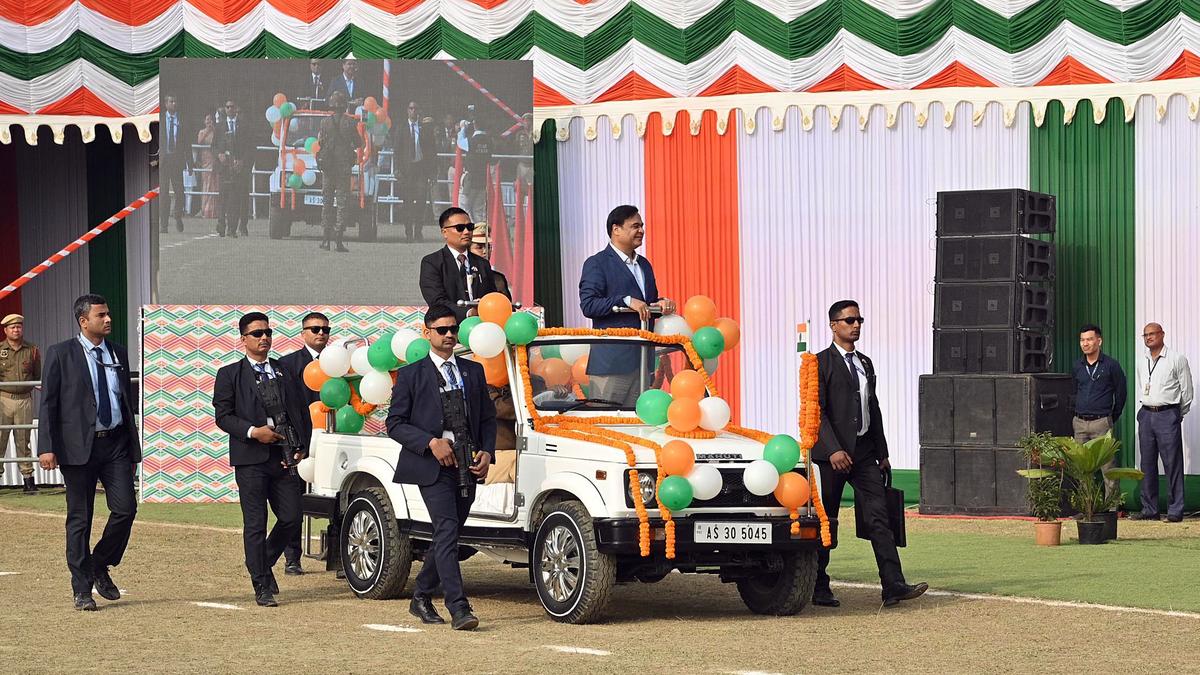 |
|
The 76th Republic Day celebrations in India's northeastern states proceeded largely without incident despite a boycott call issued by several extremist groups, most notably the United Liberation Front of Asom (Independent) or ULFA(I). The defiance of this call underscores the complex and evolving dynamics within the region, highlighting a shift in public sentiment or, perhaps, the diminishing influence of these insurgent groups. The claimed bombing in Guwahati, while presenting a potential disruption, did not significantly deter the widespread participation in the Republic Day events. The contrasting responses to the ULFA(I)'s actions – the police downplaying the incident as a 'loud sound' rather than a full-blown explosion and the continued celebrations across the region – suggest a nuanced understanding of the group's dwindling power and a determination to maintain normal life. This event should be viewed within the larger context of decades-long conflicts and the evolving strategies of insurgent groups in the Northeast.
The ULFA(I)'s attempt to leverage the Republic Day celebrations for propaganda purposes represents a familiar tactic. For years, these groups have used national holidays to carry out attacks, hoping to disrupt the festivities and generate negative publicity. The 2004 Dhemaji attack, which resulted in the deaths of 13 people, including 10 children, remains a stark reminder of the potential for extreme violence associated with these types of actions. However, the relatively muted response to the alleged blast in Guwahati, both from the authorities and the public, indicates a possible shift in the power dynamics. While the threat posed by ULFA(I) remains, its ability to significantly impact national events may be waning. The government’s response, emphasizing the operation launched to apprehend the perpetrators rather than acknowledging the impact of a significant attack, also reveals a shift in how authorities are engaging with such incidents.
The Republic Day celebrations also offered a platform for regional leaders to highlight various developmental initiatives and policy changes. Assam's Chief Minister, Himanta Biswa Sarma, announced ambitious plans for infrastructure development, aiming to transform Dibrugarh, Tezpur, and Silchar into major cities. The designation of Dibrugarh as Assam's second capital, along with plans for cultural and administrative upgrades to other cities, signifies a focus on regional development and equitable growth. The announcement of including chess in the school curriculum and the rollback of the New Pension Scheme for state government employees further showcases the government's commitment to education and the welfare of its employees. These announcements, made during the Republic Day celebrations, serve as a counterpoint to the ULFA(I)'s attempts at disruption, underscoring the progress made in the region despite ongoing security challenges.
In Manipur, the Republic Day celebrations carried added significance as the Chief Minister, N. Biren Singh, expressed hopes for a return to peace after months of ethnic violence. The participation of representatives from various districts, including conflict-affected areas, underscores the desire for unity and reconciliation. The contrasting viewpoints between the Chief Ministers of Manipur and Mizoram highlight the complexities of the regional political landscape. While N. Biren Singh emphasized the need for peace and reconciliation, his Mizoram counterpart, Lalduhoma, criticized his handling of the ethnic conflict. This divergence underscores the fact that despite the outward unity displayed during the Republic Day celebrations, significant challenges and political tensions remain within the region. The events in Manipur highlight the urgent need for long-term solutions to address the root causes of the ethnic conflict and prevent future outbreaks of violence.
Nagaland’s Governor La. Ganesan addressed the ongoing peace talks between the Centre and various factions of the National Socialist Council of Nagaland, offering a glimmer of hope for a resolution to the decades-long Naga political issue. The statement highlighting the efforts to find a peaceful resolution for the Naga political issue further emphasizes the long-term challenges the region faces. The progress made on the proposed Frontier Nagaland Territory demonstrates the government's attempts at addressing the concerns of various factions, yet it also reveals the complex negotiations and compromises required to bring long-lasting peace and stability. Tripura’s Governor praised the state government for resolving decades-old insurgency issues, offering a positive outlook for the region as a whole. This positive development highlights the importance of proactive governance, effective security measures, and the potential for significant advancements in bringing peace and stability to the region.
In conclusion, the 2025 Republic Day celebrations in India's Northeast demonstrated a clear defiance of extremist groups’ attempts at disrupting the national event. The relatively subdued response to the claimed ULFA(I) attack underscores a possible shift in the power dynamics and public attitude toward these insurgent groups. The announcements of developmental initiatives and statements by regional leaders highlighted the government's commitment to progress, peace, and reconciliation in the region. However, underlying political tensions and ongoing conflicts, as seen in Manipur and the lingering Naga political issue, remind us of the complexities and challenges still facing this part of India. The overall picture presented is one of evolving stability, marked by both progress and ongoing challenges. The region continues to navigate a complex path, balancing the pursuit of development with the need to address security concerns and internal conflicts.
Source: ‘Blast’ in Guwahati as northeast defies rebels’ Republic Day boycott call
